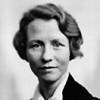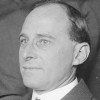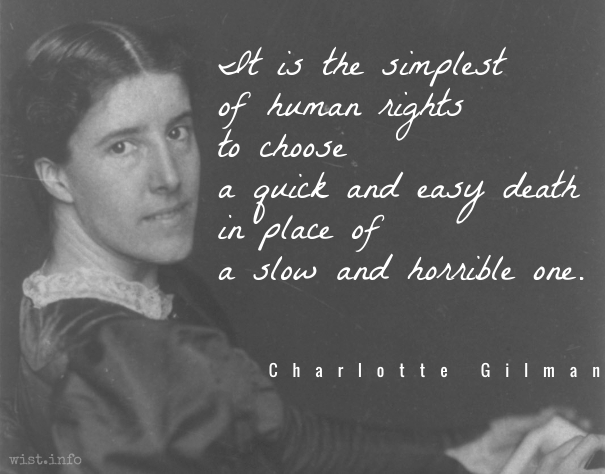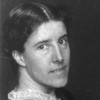Love is not all: it is not meat nor drink
Nor slumber nor a roof against the rain;
Nor yet a floating spar to men that sink
And rise and sink and rise and sink again;
Love can not fill the thickened lung with breath,
Nor clean the blood, nor set the fractured bone;
Yet many a man is making friends with death
Even as I speak, for lack of love alone.
Quotations about:
suicide
Note not all quotations have been tagged, so Search may find additional quotes on this topic.
Life was given me as a favour; I may consequently give it back, when it is no longer so.
[La vie m’a été donnée comme une faveur ; je puis donc la rendre lorsqu’elle ne l’est plus.]
Charles-Lewis de Secondat, Baron de Montesquieu (1689-1755) French political philosopher
Persian Letters [Lettres Persanes], Letter 76, Usbek to Ibben (1721) [tr. Ozell (1760 ed.), No. 77]
(Source)
(Source (French)). Alternate translations:Life was given to me as a favour; I may then return it, when it is no more so.
[tr. Floyd (1762)]Life was given me as a blessing; when it ceases to be so I can give it up.
[tr. Davidson (1891)]Life was bestowed upon me as a favor; I may then give it back when it is a favor no longer.
[tr. Betts (1897)]Life has been given to me as a favor, which I can return when it is that no longer.
[tr. Healy (1964)]Life was given to me as a kind of favor; when it ceases to be that, I can put an end to it.
[tr. MacKenzie (2014)]
When Life is woe,
And Hope is dumb,
The World says, “Go!”
The Grave says, “Come!”
I have just now come from a party where I was its life and soul; witticisms streamed from my lips, everyone laughed and admired me, but I went away — yes, the dash should be as long as the radius of the earth’s orbit ——————————— and wanted to shoot myself.
Søren Kierkegaard (1813-1855) Danish philosopher, theologian
Journal (1836-04) [tr. Hannay (1982)]
(Source)
Papieren: 1 A 161; KJN: NB 2:53. Alternate translations:I have just returned from a party of which I was the life and soul; wit poured from my lips, everyone laughed and admired me -- but I went away -- and the dash should be as long as the earth's orbit ——————————— and wanted to shoot myself.
[tr. Dru (1938)]I have just come back from a party where I was the life and soul. Witticisms flowed from my lips. Everyone laughed and admired me -- but I left, yes, that dash should be as long as the radii of the earth's orbit ——————————— and wanted to shoot myself.
[tr. Hannay (1996)]
If you stay alive for no other reason at all, please do it for spite.
Maria Bamford (b. 1970) American actress and stand-up comedian
“The Special Special Special!” (2012)
(Source)
In all your actions, words, and thoughts, be aware that it is possible that you may depart from life at any time. But leaving the human race is nothing to be afraid of, if the gods exist; they would not involve you in anything bad. And if they do not exist or have no concern for human affairs, why should I live in a universe empty of gods and empty of providence? But the gods do exist and have concern for human affairs and have placed it wholly in the power of human beings never to meet what is truly bad.
[Ὡς ἤδη δυνατοῦ ὄντος ἐξιέναι τοῦ βίου, οὕτως ἕκαστα ποιεῖν καὶ λέγειν καὶ διανοεῖσθαι. τὸ δὲ ἐξ ἀνθρώπων ἀπελθεῖν, εἰ μὲν θεοὶ εἰσίν, οὐδὲν δεινόν: κακῷ γάρ σε οὐκ ἂν περιβάλοιεν: εἰ δὲ ἤτοι οὐκ εἰσὶν ἢ οὐ μέλει αὐτοῖς τῶν ἀνθρωπείων, τί μοι ζῆν ἐν κόσμῳ κενῷ θεῶν ἢ προνοίας κενῷ; ἀλλὰ καὶ εἰσὶ καὶ μέλει αὐτοῖς τῶν ἀνθρωπείων καὶ τοῖς μὲν κατ̓ ἀλήθειαν κακοῖς ἵνα μὴ περιπίπτῃ ὁ ἄνθρωπος, ἐπ̓ αὐτῷ τὸ πᾶν ἔθεντο.]
Marcus Aurelius (AD 121-180) Roman emperor (161-180), Stoic philosopher
Meditations, Book 2, #11 [tr. Gill (2014)]
(Source)
Original Greek. Alternate translations:Whatsoever thou dost affect, whatsoever thou dost project, so do, and so project all, as one who, for aught thou knowest, may at this very present depart out of this life. And as for death, if there be any gods, it is no grievous thing to leave the society of men. The gods will do thee no hurt, thou mayest be sure. But if it be so that there be no gods, or that they take no care of the world, why should I desire to live in a world void of gods, and of all divine providence? But gods there be certainly, and they take care for the world; and as for those things which be truly evil, as vice and. wickedness, such things they have put in a man's own power, that he might avoid them if he would.
[tr. Casaubon (1634), #8]Manage all your Actions and Thoughts in such a Manner as if you were just going to step into the Grave. And what great matter is the Business of Dying; if the Gods are in Being you can suffer nothing, for they'll do you no Harm, and if they are not, or take no Care of us Mortals, why then I must tell you, that a World without either Gods, or Providence is not worth a Man's while to live in. But there's no need of this Supposition; The Being of the Gods, and their Concern in Human Affairs is beyond Dispute. And as an Instance of this, They have put it in his Power not to fall into any Calamity properly so called.
[tr. Collier (1701)]Since it is possible that thou mayest depart from life this very moment, regulate every act and thought accordingly. But to go away from among men, if there are gods, is not a thing to be afraid of, for the gods will not involve thee in evil; but if indeed they do not exist, or if they have no concern about human affairs, what is it to me to live in a universe devoid of gods or devoid of providence? But in truth they do exist, and they do care for human things, and they have put all the means in man's power to enable him not to fall into real evils.
[tr. Long (1873 ed.)]Manage all your actions, words, and thoughts accordingly , since you may at any moment quit life. And what great matter is the business of dying? If the gods are in being, you can suffer nothing, for they will do you no har. And if they are not, or take no care of us mortals -- why, then a world without either gods or Providence is not worth a man's while ot live in. But, in truth, the being of the gods, and their concern in human affairs, is beyond dispute. And they have put it entirely in a man's power not to fall into any calamity properly so-called.
[tr. Zimmern (1887)]Whatever you do or say or think, it is in your power, remember, to take leave of life. In departing from this world, if indeed there are gods, there is nothing to be afraid of; for gods will not let you fall into evil. But if there are no gods, or if they do not concern themsleves with men, why live on in a world devoid of gods, or devoid of providence? But there do exist gods, who do concern themselves with men. And they have put it wholly in the power of man not to fall into any true evil.
[tr. Rendall (1898 ed.)]Let thine every deed and word and thought be those of a man who can depart from life this moment.[16] But to go away from among men, if there are Gods, is nothing dreadful ; for they would not involve thee in evil. But if indeed there are no Gods, or if they do not concern themselves with the affairs of men, what boots it for me to live in a Universe where there are no Gods, where Providence is not? Nay, but there are Gods, and they do concern themselves with human things;[17] and they have put it wholly in man's power not to fall into evils that are truly such.
[tr. Haines (1916)]In the conviction that it is possible you may depart from life at once, act and speak and think in every case accordingly. But to leave the company of men is nothing to fear, if gods exist; for they would not involve you in ill. If, however, they do not exist or if they take no care for man's affairs, why should I go on living in a world void of gods, or void of providence? But they do exist, and they do care for men's lives, and they have put it entirely in a man's power not to fall into real ills.
[tr. Farquharson (1944)]In all you do or say or think, recollect that at any time the power of withdrawal from life is in your hands. If gods exist, you have nothing to fear in taking leave of mankind, for they will not let you come to harm. But if there are no gods, or if they have no concern with mortal affairs, what is life to me, in a world devoid of gods or devoid of Providence? Gods, however, do exist, and do concern themselves with the world of men. They have given us full power not to fall into any of the absolute evils.
[tr. Staniforth (1964)]You could leave life right now. Let that determine what you do and say and think. If the gods exist, then to abandon human beings is not frightening; the gods would never subject you to harm. And if they don't exist, or don't care what happens to us, what would be the point of living in a world without gods or Providence? But they do exist, they do care what happens to us, and everything a person needs to avoid real harm they have placed within him.
[tr. Hays (2003)]Do, say, and think each thing as if it is possible to die right now. To leave the discussion of human affairs, if there are gods, it is nothing terrible -- for they would not ensnare you in evil. If, moreover, there are no gods -- or if the realms of men are not their concern -- why would I live in a universe emptied of gods or their foresight? No, there are gods and they are concerned with the affairs of men. And they have completely arranged it that the human race many not fall into evils that are truly evil.
[tr. @sentantiq (2017)]
If I commit suicide, it will not be to destroy myself but to put myself back together again. Suicide will be for me only one means of violently reconquering myself, of brutally invading my being, of anticipating the unpredictable approaches of God. By suicide, I reintroduce my design in nature, I shall for the first time give things the shape of my will.
[Si je me tue ce ne sera pas pour me détruire, mais pour me reconstituer, le suicide ne sera pour moi qu’un moyen de me reconquérir violemment, de faire brutalement irruption dans mon être, de devancer l’avance incertaine de Dieu. Par le suicide, je réintroduis mon dessin dans la nature, je donne pour la première fois aux choses la forme de ma volonté.]
Antonin Artaud (1896-1948) French playwright, actor, director
“On Suicide” #1, Le Disque Vert (1925)
(Source)
Original French. After being diagnosed with colorectal cancer in 1948, Artaud died of poisoning, possibly a suicide.
History is crowded with the persons who have exchanged a life of dismay for death. Lucius Aruntius killed himself, he said, to escape from both the future and the past.
[L’Histoire est toute pleine de ceux qui en mille façons ont changé à la mort une vie peneuse. Lucius Aruntius se tua, pour, disoit-il, fuir et l’advenir et le passé.]
Michel de Montaigne (1533-1592) French essayist
Essays, Book 2, ch. 3 “A Custom of the Island of Cea [Coustume de l’Isle de Cea]” (c. 1573) (2.3) (1595) [tr. Ives (1925)]
(Source)
The reference to Lucius Aruntius, who killed himself during the waning days of Tiberius' reign before he could, like other enemies of Tiberius, be imprisoned and executed, was added in the 1588 edition. The event is described in Tacitus, Annals, Book 6, sec. 48.
(Source (French)). Alternate translations:The historie is very full of such, who a thousand wayes have changed a lingering-toylsome life with death. Lucius Aruntius killed himselfe (as he saide) to avoyde what was past, and eschew what was to come.
[tr. Florio (1603)]History abounds with instances of persons that have in a thousand forms, exchanged a melancholy life for death. Lucius Aruntius killed himself for the sake, as he said, of flying from deeds past and to come.
[tr. Cotton (1686), Vol. 1, ch. 60]History is everywhere full of those who by a thousand ways have exchanged a painful and irksome life for death. Lucius Aruntius killed himself, to fly, he said, both the future and the past.
[tr. Cotton/Hazlitt (1877)]History is chock full of those who in a thousand ways have changed a painful life for death. Lucius Arruntius killed himself, he said, to escape both the future and the past.
[tr. Frame (1943)]History is full of people who have, in thousands of ways, exchanged a pain-filled life for death. Lucius Aruntius killed himself, "to escape," he said, "from the future and the past."
[tr. Screech (1987)]
Don’t commit suicide, because you might change your mind two weeks later.
Art Buchwald (1925-2007) American humorist, columnist
Leaving Home (1995)
A personal mantra Buchwald used to combat his intermittent depression. Possibly borrowed from Voltaire.
We have been the cowards, lobbing cruise missiles from 2,000 miles away. That’s cowardly. Staying in the airplane when it hits the building, say what you want about it, that’s not cowardly. Stupid maybe, but not cowardly.
Life often seems like a long shipwreck, of which the debris are friendship, glory, and love; the shores of existence are strewn with them.
When I was young, for two or three years the light faded out of the picture. I did my work. I sat in the House of Commons, but black depression settled on me. It helped me to talk to Clemmie about it. I don’t like standing near the edge of a platform whn an express train is passing through. I like to stand right back and if possible to get a pillar between me and the train. I don’t like to stand by the side of a ship and look down into the water. A second’s action would end everything. A few drops of desperation.
When I was young, for two or three years the light faded out of the picture. I did my work. I sat in the House of Commons, but black depression settled on me. It helped me to talk to Clemmie about it. I don’t like standing near the edge of a platform when an express train is passing through. I like to stand right back and if possible to get a pillar between me and the train. I don’t like to stand by the side of a ship and look down into the water. A second’s action would end everything. A few drops of desperation.
Whenever Richard Cory went down town,
We people on the pavement looked at him:
He was a gentleman from sole to crown,
Clean-favored and imperially slim.And he was always quietly arrayed,
And he was always human when he talked;
But still he fluttered pulses when he said,
“Good Morning!” and he glittered when he walked.And he was rich, yes, richer than a king,
And admirably schooled in every grace:
In fine — we thought that he was everything
To make us wish that we were in his place.So on we worked and waited for the light,
And went without the meat and cursed the bread,
And Richard Cory, one calm summer night,
Went home and put a bullet in his head.
Human life consists in mutual service. No grief, pain, misfortune, or “broken heart,” is excuse for cutting off one’s life while any power of service remains. But when all usefulness is over, when one is assured of an unavoidable and imminent death, it is the simplest of human rights to choose a quick and easy death in place of a slow and horrible one.
Razors pain you;
Rivers are damp;
Acids stain you;
And drugs cause cramp.
Guns aren’t lawful;
Nooses give;
Gas smells awful;
You might as well live.Dorothy Parker (1893-1967) American writer
“Résumé,” New York World (16 Aug 1925)
(Source)
Reprinted in Enough Rope (1926). Parker attempted suicide several times, by a variety of methods.






















